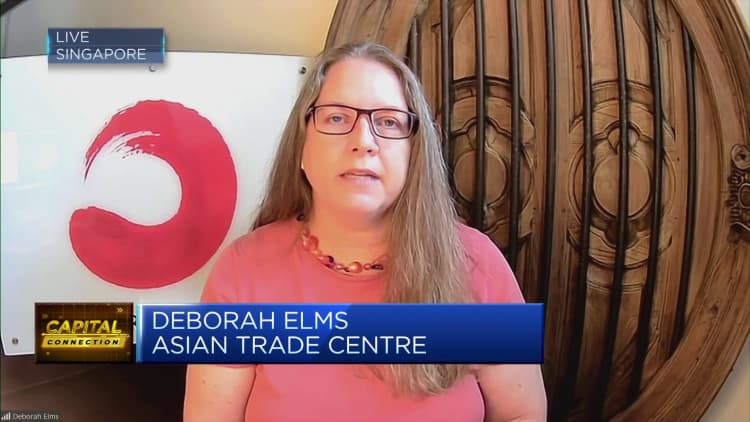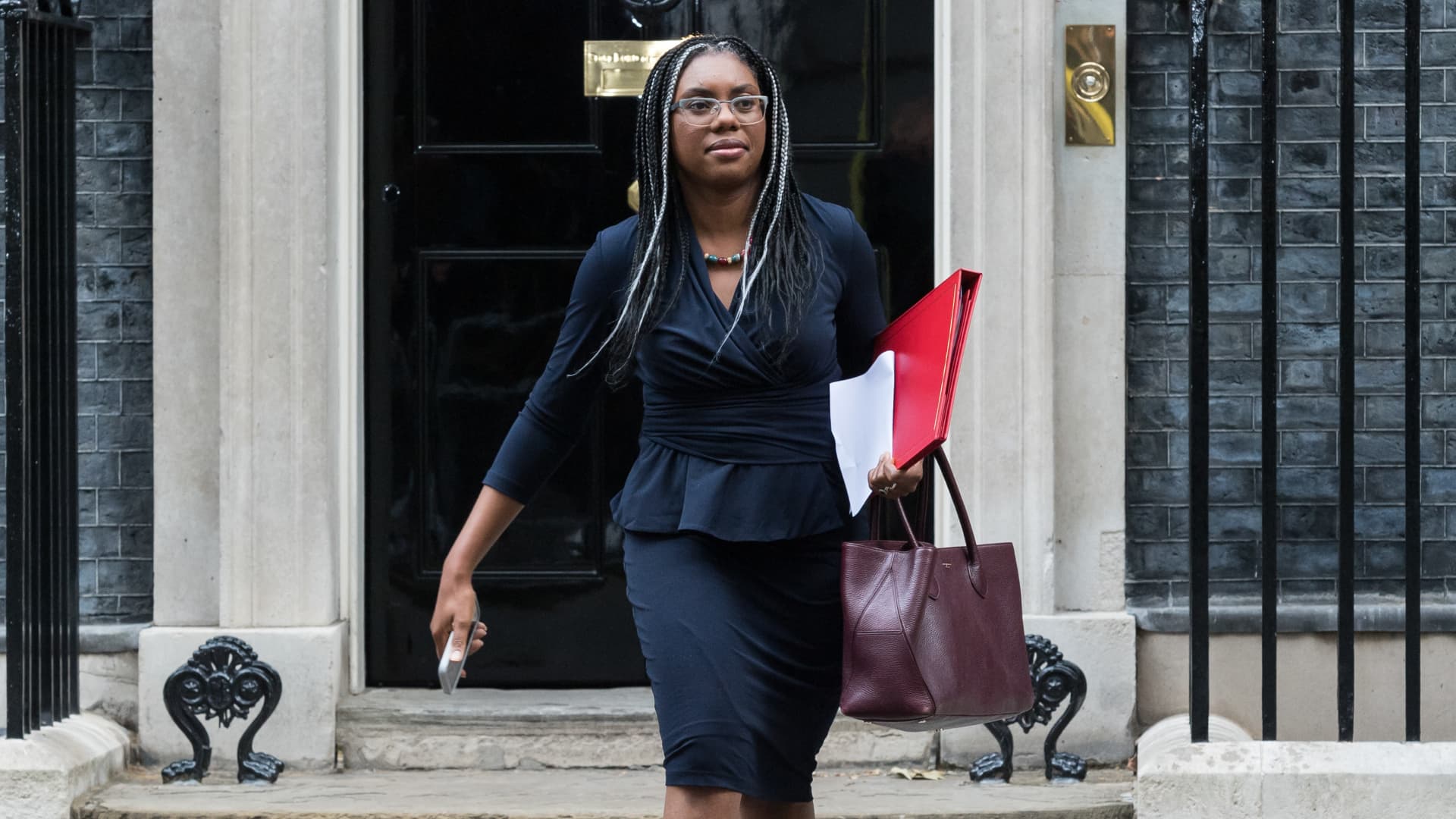Secretary of State for International Trade and President of the Board of Trade, Minister for Women and Equalities Kemi Badenoch leaves 10 Downing Street.
Future Publishing | Future Publishing | Getty Images
LONDON — Britain’s Kemi Badenoch, the business and trade secretary, formally signed a treaty confirming accession to the vast Indo-Pacific CPTPP bloc, the country’s largest post-Brexit trade deal to date.
Signed Sunday in New Zealand, the deal will now receive parliamentary scrutiny in the U.K., while other CPTPP nations will also complete their own legislative processes. More than 99% of the current U.K. goods that are exported to CPTPP countries will soon be eligible for zero tariffs, the U.K. government said.
The 11-member Comprehensive and Progressive Agreement for Trans-Pacific Partnership includes Canada, Mexico, Japan, Australia, Vietnam, Singapore and Malaysia, among others. The U.K. would be the first European nation to join the bloc, which the government says would unlock trade to a region with a total GDP of £12 trillion ($15.7 trillion).
It remains to be seen how much the deal actually benefits Britain’s growth prospects. Based on the government’s own estimates, the deal will raise long-term domestic GDP by just 0.08%, which will have little impact to offset European trade losses as a result of Brexit. The U.K. officially left the EU on Jan. 31, 2020.
Badenoch said Sunday that Britain was using its status as an independent trading nation to join an “exciting, growing, forward-looking trade bloc.”
“[It] will help grow the U.K. economy and build on the hundreds of thousands of jobs CPTPP-owned businesses already support up and down the country,” she said in a statement. One in every 100 workers in Britain was employed by a business headquartered in a CPTPP nation, according to the government citing 2019 data.

Badenoch added that the deal would “open up huge opportunities and unparalleled access to a market of over 500 million people.”
The trade pact evolved out of the now-defunct Trans-Pacific Partnership, or TPP, that originated in the United States but fell apart after former President Donald Trump scrapped U.S. involvement.
Sean McGuire, the Europe Director at the Confederation of British Industry, said that the deal, alongside an outward and strategic global trade agenda by Britain, has the “potential to drive export-led growth in critical sectors, like services and green tech, while also making our supply chains more resilient.”
“As one of the largest agreements globally, including some of the world’s most dynamic markets, U.K. firms will be eyeing up new trade and investment opportunities,” he said in an emailed statement.
—CNBC’s Sumathi Bala contributed to this article.

